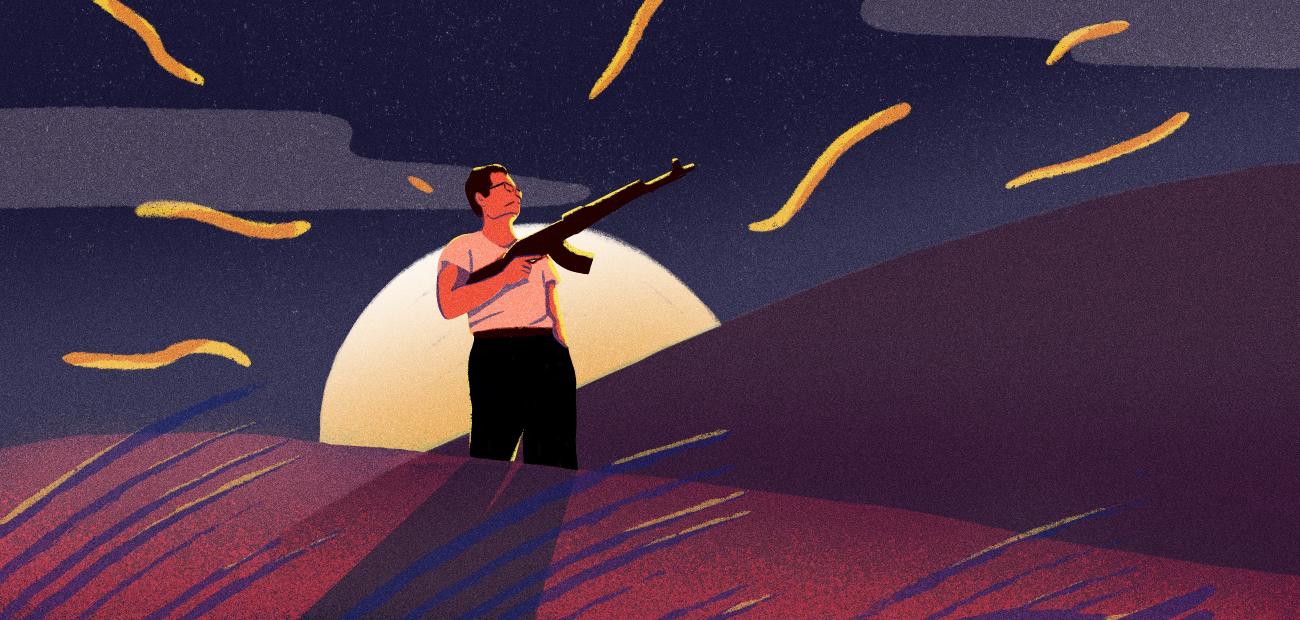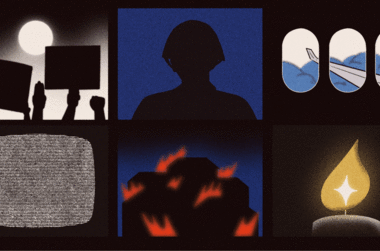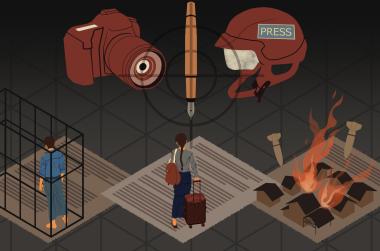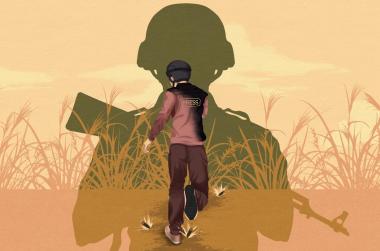The writer is a journalist in Kachin State who is receiving support from The Kite Tales to write these diaries.
Of all the people from all walks of life who have mobilised to oppose the military dictatorship in Myanmar, I would like to tell you about a friend of mine, who is now a member of the People's Defense Forces.
We first met only after the coup. Huge protests erupted straight after the military seized power and we both went to cover the demonstrations and take pictures. We quickly fell into an easy camaraderie and formed a close bond. I still remember him telling me that if being a journalist and bearing witness to the events was not enough, he would take part in the revolution himself.
His name is Naing Tun. He is not yet 30 years old. Before the coup he was a poet, a writer, as well as a lawyer, English translator and eventually journalist as well.
While working as a reporter in the Hpakant area of Kachin State, he bravely documented the military’s crackdowns during the coup. His photos of a brutal crackdown of protesters in Hpakant went viral on social media. He also shared his pictures with other news outlets free of charge. He was outspoken on his social networks too, talking plainly about his opposition to the military dictatorship.
I fled to a liberated area about two months after the coup and a few weeks later he turned up at the same place. He said he had come on a reporting assignment, but when I probed further, he told me he had come to join the PDF. (Editor’s note - PDF stands for People’s Defence Forces, a newly-created group made up of ordinary people across the country who have taken up arms against the military, intent on outsing the army by force if necessary)
When I heard that, I was speechless. But I also felt respect for his decision. He had abandoned his salary, family, and successes. From that moment, we were no longer leading the same life. I continued to work for the people through my journalism, but he chose to do it by taking up arms.
I asked him why he gave up everything to become a soldier, why he came to study warfare with the ethnic armed groups.
“I want to uproot the dictatorship,” he told me.
“I do not want to pass on this legacy to future generations. And I want to pay the blood debt of our people."
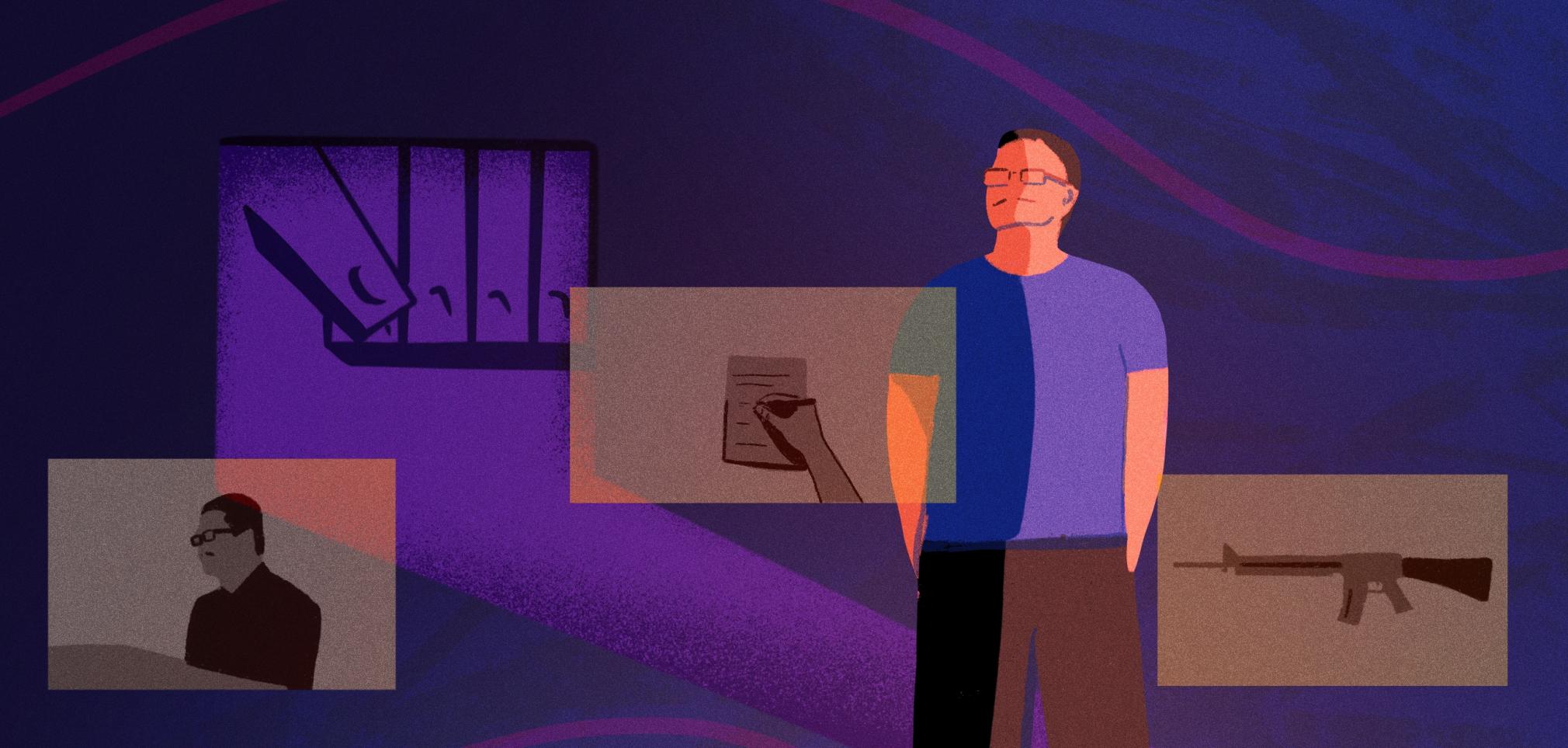
After that when I talked to him on the phone, he told me about the hardships of a PDF trainee, the discipline, and the fatigue. He always said no matter how tired he was, he had to work for the people.
When he returned after two months of training, he was no longer the Naing Tun I knew before.
The previous Naing Tun was plump and had puffy cheeks. When he returned he had lost about 40 pounds and become leaner. But the changes were more than just physical. His behaviour and habits changed too. After becoming a soldier, Naing Tun became more serious. He no longer enjoyed fun and games like before. The one thought constantly in his mind was overthrowing the dictatorship. I admired him. I thought that it would be good if the country had more such good soldiers.
More than a month after his training, he was sent to the front lines. It was what he wanted.
On the day he left, told me: “My friend, I am going to go fight for the freedom of my people, for the future of our country."
Every morning I look at my messenger to see if there is a green dot next to his name, which means he is online. If a few days had passed without that green light, I start to worry. To this day, he continues to fight on a battlefield in the central region of Sagaing.
I asked for his permission to publish this diary about him and he told me to go ahead because this will be his history.
About a month after he left to fight, I managed to speak to him on the phone and he told me not to worry.
Before he hung up, he said: “My friend, we will win and come back victorious. The revolution must succeed.”
Artwork by JC who is receiving support from The Kite Tales to produce illustrations.

